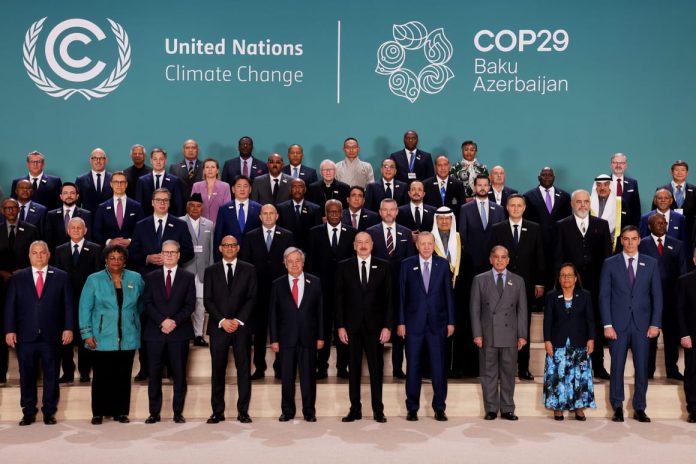The biggest rich nations at UN climate talks in Azerbaijan agreed to increase a global financial offer to help developing countries tackle the climate crisis to $250bn a year, as ministers met through the night in a bid to salvage a deal.
Fierce negotiations at UN climate talks in Azerbaijan were rescheduled on Saturday after developing countries worst hit by a rapidly warming Earth flatly rejected a $250bn-a-year offer from rich nations.
Negotiators from nearly 200 countries spent another anxious and sleepless night in a sports stadium trying to find a compromise figure for poorer nations facing rising sea levels, worsening droughts and worsening natural disasters.
Despite the measures announced, some COP29 participants have expressed dissatisfaction with the proposed $250bn. According to representatives of non-governmental organisations, environmental activists and small island developing states, this amount of funding is clearly inadequate. They call the figure unambitious and unfair, believing that it will seriously slow down global efforts to combat climate change.
Critics emphasise that achieving the goals of the Paris Agreement, in particular keeping global warming within 1.5°C, requires a much larger financial investment. They push for at least $1 trillion in grants annually to help developing countries adapt to climate change and transition to environmentally sustainable economies.
Climate finance issue
The issue of climate finance has already been the subject of heated debate on several occasions. In 2009, at a conference in Paris, developed countries pledged to mobilise $100 billion a year by 2020 to support climate action. However, the pledge was only fulfilled 2 years late.
Now COP29 is discussing ambitious new targets to help address climate injustice between developed and developing countries. However, serious disagreements remain between conference participants over the amount of funding needed and the sources of that funding.
